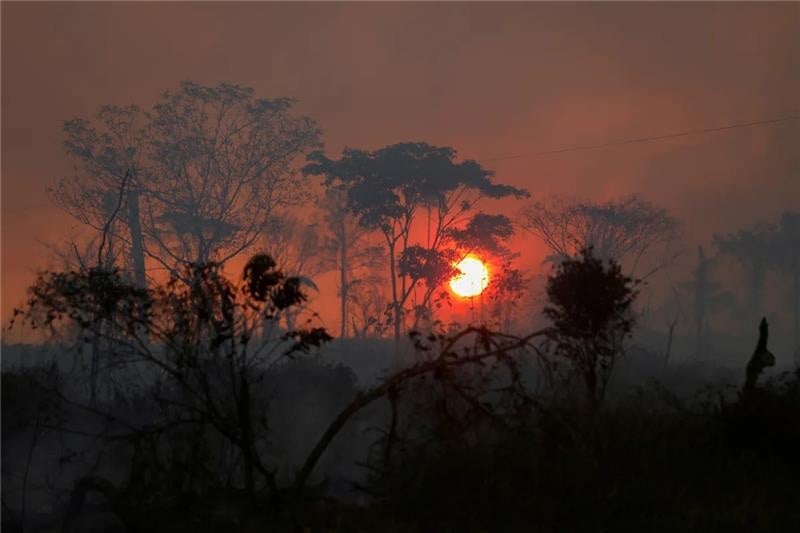COP27 is leaving huge loopholes for greenwashing
Negotiations on a new carbon market allow for dubious accounting and lack transparency

As COP27 in Egypt hurtles toward a conclusion, many important issues—including funding for “loss and damage,” how countries should report on their carbon-cutting progress, and whether all countries can agree on a long-term goal to phase down fossil fuels—remain unresolved.
Suggested Reading
In a statement late on Nov. 17, Sameh Shoukry, Egypt’s minister of foreign affairs, who is leading the summit, offered a grim assessment: “There are still a number of issues where progress remains lacking. While some of the discussions were constructive and positive, others did not reflect the expected recognition of the need to move collectively to address the gravity and urgency of the climate crisis.”
Related Content
One of these issues is the nascent market for carbon credits, which is being structured at COP in a way that leaves open gaping loopholes for corporate greenwashing.
Carbon markets could be shrouded in secrecy
The 2015 Paris Agreement calls for the formation of two types of carbon trading markets, which in theory would allow a higher-emitting country to pay for carbon-cutting projects in another (forest conservation, for example, or building a solar farm). The country selling the credit gets cash. The country buying the credit pays for its emissions rather than directly reducing them. These credits are similar to the kinds of carbon offsets that exist today, and that are plagued by inconsistency, fraud, or insufficiency.
In the first kind of market, two or more countries can agree to trade directly with each other; in the second, a UN-administered marketplace would gather carbon credits from around the world and make them available to countries or private companies.
The byzantine rules for these proposed markets are still under negotiation, but two big problems with their current shape worry independent experts.
The first problem relates to bilateral or multilateral carbon trading. The rules call for an independent committee to oversee these trades, so that, for example, two countries acting in bad faith can’t create a bogus carbon market and then claim to be doing their part on climate. But the rules allow countries to designate any amount of information about their carbon market as confidential, essentially putting the whole process in the dark. The committee may have access to confidential information but cannot reveal it, preventing civil society groups or other watchdogs from holding the countries to account.
Moreover, the committee itself is completely toothless. “What is the consequence if the review finds the process is a complete joke?” said Gilles Dufrasne, lead analyst at Carbon Market Watch, an advocacy and research group. “The review team gives an opinion, and countries can completely ignore it.”
Carbon markets allow for misleading accounting
The second problem relates to the wider UN carbon market. This system is only credible if each credit is counted just once. For example, if carbon credits are created from a forest conservation project in Zimbabwe and then sold, via the UN marketplace, to a US oil company, the credit can be counted against Zimbabwe’s national carbon footprint or the oil company’s corporate carbon footprint, but not both. To count such credits twice would foster the illusion that global emissions are falling faster than they really are, and would amount to greenwashing.
The rules being developed for this market prohibit double-counting for one class of credits. But another class of credits suffers no such constraint, and if they are priced cheaper, they could offer companies an attractive way to indulge in greenwashing. To circumvent this, late-night COP negotiations on Nov. 17 arrived at a decision to label the latter class of credits as “contributions,” rather than true offsets. The distinction is meant to clarify that companies buying these credits are merely supporting carbon-cutting activity in a general, corporate-social-responsibility sense, and not directly offsetting their own emissions per se.
The “contribution” language is a positive step, Dufrasne said. But without more specific prohibitions, he said, the rules still “leave the door wide open for double-counting between countries and companies.”
Although the rules are not bulletproof against greenwashing, they do offer a model for corporate climate plans. With the right kind of oversight, credits in these markets may end up being more robust than present-day offsets. Truly climate-conscious companies may scrap their old-school reliance on dubious offsets, and refocus their actions around reducing their own emissions, buying more effective credits, and “contributing” to emissions reductions elsewhere. And although the UN has no direct power over the existing, $2 billion private carbon credit market, the rules that take shape here will send an important signal to that market about what governments view as credible.